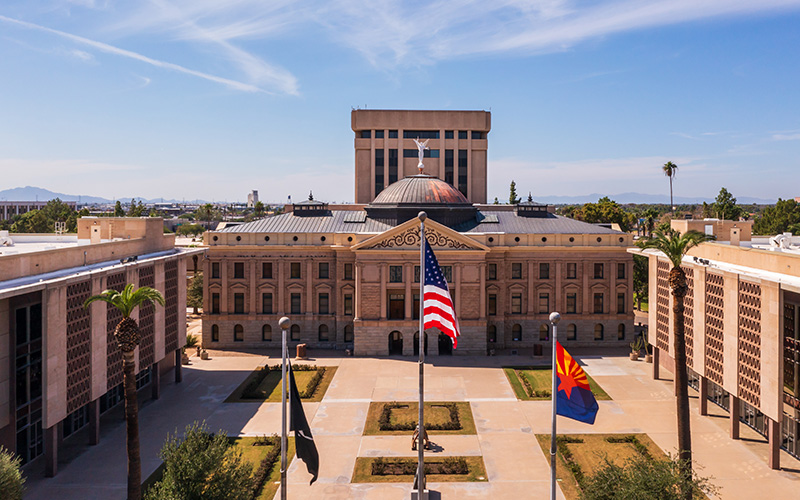As the fight to curb government and union abuse of taxpayer money continues, two public employees recently secured a major victory at the Arizona Supreme Court in their challenge against “release time” contract provisions. These provisions allowed the “release” of public employees from the duties they were hired to perform to instead be paid to perform work for unions – all paid for by taxpayers.
As argued in the Freedom Foundation’s amicus brief, filed in support of the employees, the Arizona Supreme Court unanimously struck down the “release time” provisions as a violation of the “Gift Clause” of the Arizona Constitution, reinforcing the state’s constitutional ban on government gifts to private entities.
Under so-called “Gift Clauses” — a feature of many state constitutions — funds raised by general taxation may not be used to pay individuals, associations, or corporations, including public-sector unions.
In other words, it is a prohibition on “gifts” of public money to private individuals and entities.
The Court made its decision based on analysis of the fact that the provision directed significant public funds and resources to the union. This resulted in essentially one-sided costs and benefits in the union’s favor, which the Court identified as an illegal and unconstitutional gift of public money to a private entity.
The Freedom Foundation’s amicus brief emphasized that the “release time” provision forcing taxpayers to fund union partisan speech violates the Gift Clause.
The city and union argued that these provisions are permissible because they promote “labor peace” — that is, a stable relationship between employers and employees in which both parties work together without major disputes or strikes.
However, the Freedom Foundation countered this argument, highlighting that the Court’s landmark 2018 decision in Janus v. AFSCME taught that funding of unions is not linked to “labor peace.”
Additionally, the Freedom Foundation noted that employees are already prohibited from striking. Thus, directly in line with the Court’s conclusion, “release time” provisions do not function as something the city bargained in return for reducing the risk of a labor strike.
The Freedom Foundation also argued that “release time” provisions potentially constitute impermissible viewpoint discrimination in violation of the First Amendment.
When the government favors one private party’s speech over another, such as providing public funds and resources to one party and not to an opposing party, the government is, in a sense, endorsing one viewpoint over another viewpoint.
Hence, viewpoint discrimination.
Thus, the Freedom Foundation argued that when government entities give money to private organizations, such as a union, which then uses that money to advance its particular viewpoints, the government opens itself up to viewpoint discrimination the moment other groups who oppose the union’s ideology demand equal release time to advance in their preferred views.
This potential constitutional violation the Freedom Foundation’s amicus brief brought to light urged the Court to rule as it did, demonstrating the perils and pitfalls of potential First Amendment controversies that could arise had the Court allowed release time.
As government entities and public-sector unions across the country find ways to abuse taxpayer money in support of their partisan political agendas, future lawsuits at the state level can use this legal victory to invoke a similar state constitutional hook to push back against this abuse once and for all.












